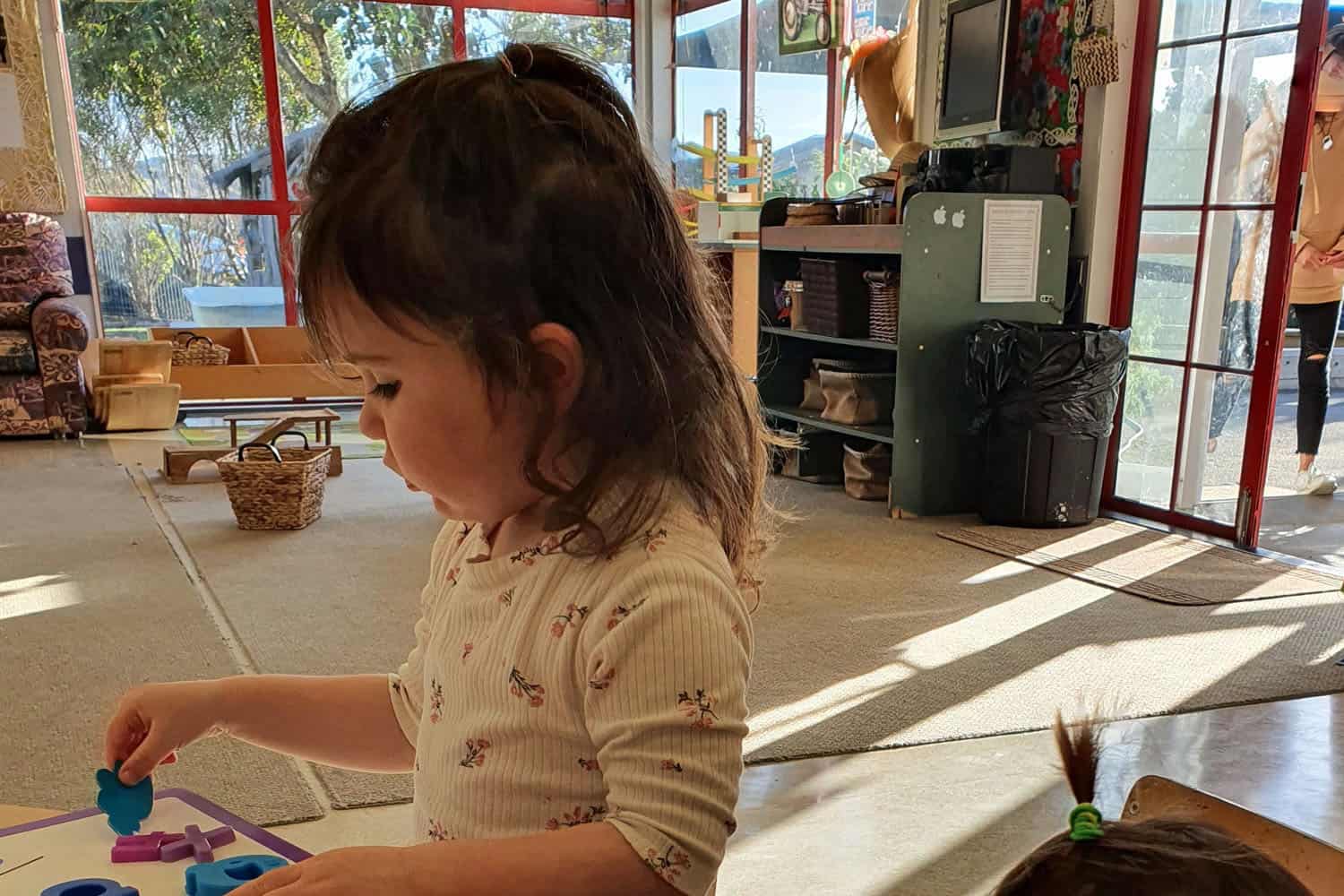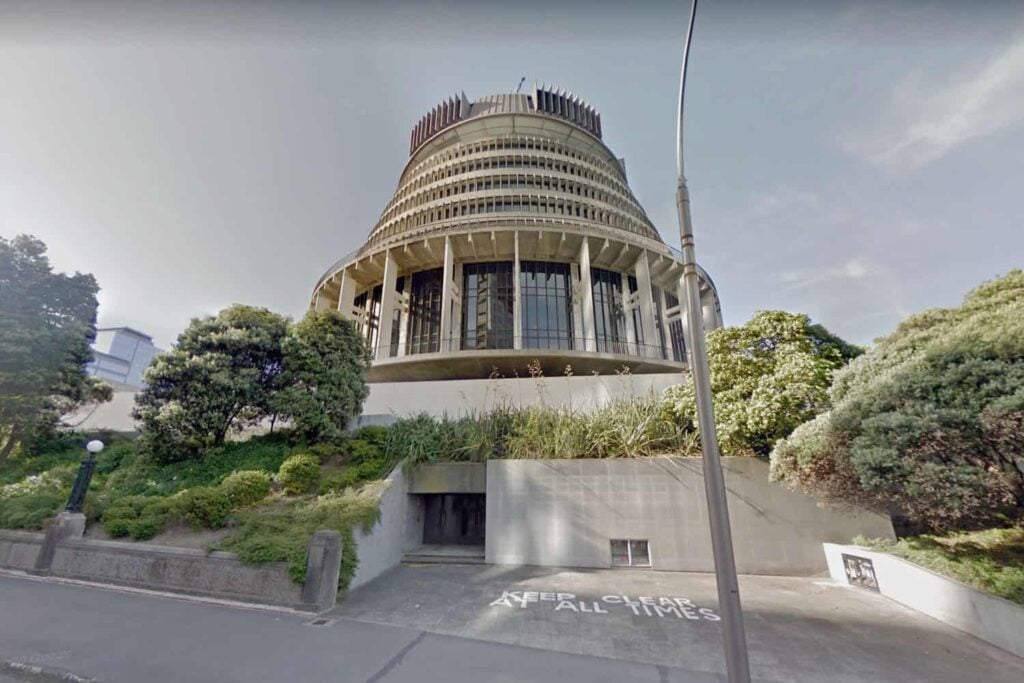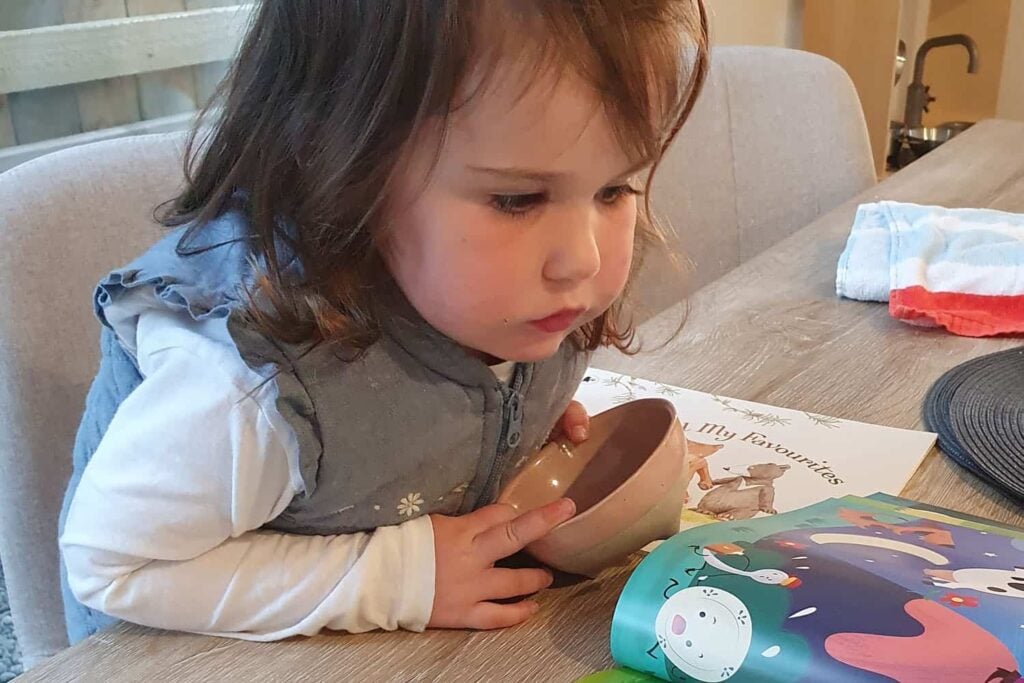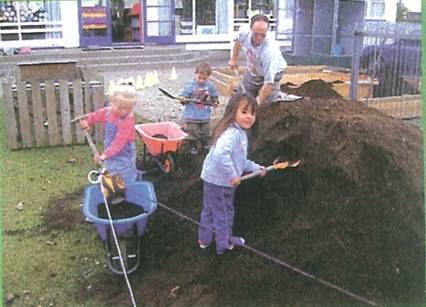Save the Free Kindergarten Model.
This letter was first produced as a draft, and following feedback from within our early childhood networks a final copy was prepared on 2 June 2017. These leaders and organisations were sent a copy:
– Hon Nikki Kaye (Minister of Education)
– Iona Holsted (head of the Ministry of Education)
– Chris Hipkins (Labour opposition spokesperson for education)
– All kindergarten associations
As at 18 June 2017 no acknowledgements and/or replies had been received from any of the above people and kindergarten associations.
We have learnt via a journalist’s question to the Ministry of Education and Iona Holsted that kindergartens are no longer separately recognised as kindergartens but are now ‘education and care centres’ under the Education Act.
This placement of kindergarten within the definition of a childcare service shows that the traditional definition of kindergarten no longer applies in the eyes of the Government. The traditional definition saw kindergarten as being a free public service available to any child from any home background to attend for morning or afternoon sessions in the year or two before starting school (Kindergarten Regulations, 1959).
Open Letter – Please Save the Free Kindergarten Model
2 June 2017
Do you see the free public kindergarten as having had its day or as being important to retain?
Whatever your opinion is on this matter, we hope you continue reading this letter as it contains discussion and perspectives that everyone with an interest in young children’s care and education needs to know and consider.
This open letter has been prompted by news of the Heretaunga Kindergarten Association in the Hawke’s Bay being among the latest associations to make changes to the way it offers kindergarten services.
Auckland Kindergarten Association also announced recently that it was considering a serious restructure including scrapping term breaks and extending the 6-hour day attendance for children at many of its kindergartens to 7 hours.
Today there remains only one kindergarten in the country out of more than 500 formerly that has not been changed from 2 sessions a day of less than 4 hours per group of children to an all-day licence.
The changes raise questions concerning:
- How to manage the risk to children of institutionalisation – spending more hours in non-parental care at a young age than is necessary for children’s learning and for their care and protection.
- Whether kindergartens can provide support that will help to make changes in the home that any vulnerable child goes back to at the end of the day when teachers have less or no non-contact time for work with parents, planning, and liaison with support agencies.
- How far kindergarten will assimilate into being a childcare service and therefore also be affected by the economy and parent ability to pay fees.
The free kindergarten is a model that is highly suited to the needs of children. It has served generations of kiwi children and families well. Its structural quality has provided a robust basis for effective teaching and learning.
As with the school system, it may be argued that NZ should retain a public system of early childhood education that takes in all children, is funded fully by the taxpayer with donations only from families, is run transparently, and staffed with the best teachers it can recruit.
There is a perception that kindergarten will die if kindergarten associations do not change how kindergartens operate to compete with services that provide year-round long day childcare. However changing to 6- or 7-hour days as most associations have done, or are doing, falls short on what most full-time working parents need for childcare. To have more chance of surviving long-term in the strongly competitive childcare market and to properly support the childcare needs of full-time working parents, a kindergarten would need to offer 8- or 9-hour days of care (something we do not advocate), or be changed back by its association to being a sessional-licence and offer morning or afternoon preschool sessions for the children of working parents using home-based ECE (which would be an intelligent approach supporting both the needs of children and parent choice).
The erasure of kindergarten as a unique choice for families is unfortunately getting closer to becoming a reality. The consequences of kindergarten as a unique service disappearing are grim.
- When the last remaining sessional kindergarten in New Zealand, Ponsonby Kindergarten, is changed by the Auckland Kindergarten Association to an all-day licence then (a) there will be no free kindergartens left in NZ that still meet the definition of a free kindergarten under the Education Act, and (b) the funding rate for sessional kindergarten with 100% certificated teachers will cease to show in the Ministry of Education funding table.
- Kindergartens will no longer feature as a distinctive choice in our early childhood system alongside childcare centres, playcentres, kohanga reo, home-based ECE, and hospital-based services. The Ministry of Education will no longer need to collect separate statistics on kindergartens. For all statistical and funding purposes kindergartens under kindergarten associations would be counted and treated as ‘education and care centres’, a classification that for example includes community kindergartens run under the BestStart private family trust childcare agency brand.
- It could be argued that associations no longer have a right to free or taxpayer subsidised use of public land and buildings not available to other ECE services. This could result in the cost of rent or purchase being passed onto parents through fee charges. Kindergartens provided on public grounds could be forced to close and buildings that the taxpayer has contributed to could be claimed back by the State and/or put out to tender to other ECE service operators for market rents.
- Kindergartens will no longer be about children and meeting children’s needs first and foremost. Teachers working in childcare services say that 6 hours or more a day of institutionalised education is too long for young children.
We hope this open letter raises awareness and gives an opportunity for discussion about where kindergarten is heading.
Kindergarten is a unique and much loved part of our education system, serving many generations of children and families and it will be a sad day when it is fully assimilated into being not unlike any childcare service, and communities and parents are locked out of running and having a say over their local kindy for their children.
It is hoped that the NZEI teachers’ union will come out strongly in support of retaining the high quality kindergarten education model – it is still not too late to show support.
The government has so far provided no indication that it will intervene in the decisions associations make, however government intervention is needed to secure the future of kindergarten.
Kindergarten association boards and managers must stop kindergarten as it is known in our society from being erased. Kindergarten associations need to show greater responsibility as a community service to children, families and to the quality of early childhood education in Aotearoa New Zealand, and focus on retaining kindergartens’ distinctive point of difference in the early childhood system.
Please see Appendix 1 below for some key facts and issues regarding the background to recent changes, why and consequences. Appendix 2 outlines actions that could be taken to secure the future of the free kindergarten by retaining its distinctive model of education and reflecting core public service philosophy.
Yours sincerely,
Sarah Alexander, Bianca Dykman, Louise Carrington, Janet Walden, Louise Baker,
Michelle Simon, Helen Betts Byrne, Sandra Mead, Franzi Corker, Marnie Rosser,
Heather Marshall, Joceline Triscott, James A Doyle, Kimbeley Cammock, Angela Palmer,
Lorraine Gray, Patt Jepsen, Heather Thurlow, Vida Schurr, Cheryl Kingi,
Melissa Collins, Maryanne Gilbert, Garrett Kett, Mindy Cheung, Emma Dobbie,
Liz Sutton, Anita Stowell, Suzanne Brocx, Katherine Belz, Teresa Robertson,
Lee-Anne Turton, Sandra Tukukino, Natasha Humphrey, Sandy Thompson, Michelle Smithies,
Viv Browne, Kaye Goodall-Anderson, Rhonda Leigh James, Rebecca Harris, Ruth Bennett,
Mark Walker, Anuja Jena-Crottet, Sharron Raams, Christine Smith, Amie Whiting,
Michelle Cross, Donna Marie Plasmeyer, Sheree Davys, Sandra Pearce, Renate Simenauer,
Claire Eyres, Monique Snow, Dena Chrishelle Baxter, Sandy Lugton, Kelly Griffiths,
Sandi Frearson, Tanya Tucker, Sharon Lewis, Zair Taylor, Caroline Bowald,
Cindy Logan, Chris Bell, Stacey Shannon Mckellar Murphy, Angela Mitchell, Jess Welsh,
Carma Bailey, Kimberley Powell, Rhonda Follows, Ashleigh Potts, Mel Hart,
Sarah Collins, Geraldine Redpath, Megan Utting, Jennifer Millar, Lyn Hoffman,
Joshua Moreland, Tammy Wellaway, Antonia Mountfort, Jennifer McBride, Rachael Sanderson,
Helen Hansen, Kate Liddington, Angela Kimber, Tui Skelton, Angela Drabble,
Donna Courtney, Denise Durbin, Maree Conaglen, Linda Petrenko, Melissa Hopcroft,
Georgina Head, Glenn Furniss, Marline Couper, Rex Couper, Naomi Peterson,
Rae Lorimer, Jacqui Barnes, Sarah Lou, Amy Louise Chung, Jo Goldsmith,
Rebecca Brears, Heidi Harrison, Sue Mareta-Ria, Milly Croft, Wendy Riefler,
Julia Campbell, Martina Saville, Debbie Croad, Megan McSporran, Fiona Stokes,
Keren Ireson, Annabel Wyeth, Sandra Rasmussen, Lorren Hawkins, Yenegh Kokebe,
Frances Whiteman, Stephanie Hale, Tess Ranson, Ali Coleman, Sue McCandlish,
Christine Richards, David Baxendell, Briar Heskett, Suzie Q Coates, Tania Agnew
Eli Maiava, John Gerrity, Robyn Gerrity, Marnie Wilton, Tracey Barker
Elizabeth Wilson, K Burns, Sarah Miller, Kay Robinson, Ken Phillips
Maureen Buckton, Ruth Wilton, Keri Wilton, Claire Ellery, Rebecca Plunkett
Judith Knight, Wendy Marshall, Linda Stewart, Rachel Neal, Sophia Stevens,
Jon Gibson, Celia Thompson, Katherine Souness, Anita Gibson, Shelagh Glynan,
Emma Gibson, Megan Gilbert, Sarah Maudsley, Kathrine Avery, Brendon Marshall,
Sarah Fleming, Laura Fletcher-Ha, Daniela Rouse, Vanessa Rehm, Rebecca James,
Luke Garea, Korrin Laker, Alexis Peters, Grace Tuaiti, Monique Russell,
David Spalding, Melanie Jones, Viviana Becker, Jakki Taylor, Claire Southee,
Sandi Skellern, Jennifer Waugh, Simon Waugh, Kate Schick, Wilma Weber,
Victoria Cartwright, Kate Davies, Pia Lupis, Marissa Bale, Leanne Browne
and Amanda Lane.
Appendix 1 – Key Facts and Issues
State Service and Support
- Under the Education Act a free kindergarten is defined as an early childhood service “whose licence permits no child to attend for a period of more than 4 hours on any day … and is controlled by a free kindergarten association founded for the purpose of establishing and maintaining a kindergarten or kindergartens.”
- The terms and conditions of employment of all teachers in a free kindergarten (as that term is used in the Education Act) are subject to the requirements of the State Sector Act. All collective agreements applying to teachers are negotiated by the Ministry of Education with the NZEI union and are then binding on the employers (the Associations) and the employees covered (members of NZEI). Teachers who are not members of NZEI are covered by individual employment agreements, which nevertheless require the concurrence of the Ministry of Education.
- Twenty years ago, rushed through with urgency and no consultation, the State Service Minister Jenny Shipley introduced a bill to Parliament to remove kindergarten teachers from the State Sector Act. Associate Minister of Education, Brian Donnelly, said that it was about removing an unfair anomaly in the early childhood sector. Labour came in at the election following that and returned kindergarten teachers to the State Sector Act. State Services Minister Trevor Mallard said that “the National Government was trying to wriggle out of the shame of refusing to fund the pay increases negotiated by the State Services Commission. By doing so, they removed a very important benchmark for the funding of all other early childhood education.” He added: “The previous Government saw early childhood education as a business.” But, “The Government owns the majority of kindergartens and there is certainly a public perception that we are a major partner in the kindergarten sector and therefore have a greater responsibility for encouraging quality.”
Fees and parent right to access ECE
- Under The Kindergarten Regulations 1959 no kindergarten could charge fees. Kindergartens could ask for a donation but had to accept any child no matter what the family circumstances and parent financial contributions. Today there is no longer any legal requirement preventing kindergartens from charging fees, excluding children whose parents do not pay or cannot afford to pay, and using debt collectors for unpaid fees.
- Kindergartens today that are signed up to the 20 Hours ECE funding scheme can deny a family free access if the child is also attending another licensed service that is funded for 20 Hours ECE.
About the 20 Hour Free ECE Policy and its impact
- Introduced by Labour to support women’s right to work through reducing the barrier of access to and affordability of childcare.
- Designed to support community-based childcare and the growth of community services but lobbying saw Labour extend the funding to private childcare.
- Designed to provide care ‘free’ of payment with obligation on the State to ensure that the funding rates kept pace with the costs to ECE providers of providing the care. However the Auckland Kindergarten Association in its partnership with the private lobby group for childcare centre employers the ‘Early Childhood Council’ put pressure on Labour close to general election time to allow centres to directly levy optional charges to parents and not have rules in place preventing centres from finding other ways to generate revenue from parents. National was subsequently able to then remove the word ‘free’ from the 20-Hour funding scheme’s name.
- The 20 Hour-funding tiered rates provided a financial incentive to childcare centres to increase their qualified and registered teacher numbers. Kindergartens that had changed licence from a sessional to an all-day service to get the top 100% qualified teacher rate were caught out when the government collapsed the 100% and 80% rates into a single 80%+ rate.
Child Participation Rate
- By increasing the hours that children are enrolled in kindergarten, Associations have acted to decrease the total number of children participating. In 2007 there were 43,695 children enrolled at kindergartens across the country. By 2015 the number had decreased to 31,000 children enrolled – and yet 34 more kindergartens had opened over this period (meaning more kindergartens but fewer children overall catered for).
Effects of Extended Kindergarten Hours
- Kindergarten children are no longer all arriving close to opening time and staying till closing time. A fall in occupancy rates to a level the same as childcare centres is suggested by the Ministry of Education to indicate that since kindergartens have switched to all-day licenses a higher proportion of maximum available funded hours are not being used by parents, “this may well be the hours at either end of what are now longer daily attendances.”
- It can be questioned according to the Ministry of Education, whether the higher hourly subsidy rate amount paid to all-day centres has offset the increased salary cost of the higher teacher to child ratios of all-day services and benefited kindergartens’ financially. (Would not kindergartens have been as well off, or even better off financially to have not gone for the all-day funding rate amount? Instead kindergarten teachers and the union could have lobbied the government for improvement to ratios, remaining as sessional-licensed services and being as financially well-off or better off than is the case now under the 80%+ ECE funding rate)
- The research evidence on childcare effects tells us that children experiencing as little as 12.5 hours per week or 2.5 hour sessions are similarly advantaged as children who attend more hours. More hours in childcare can act to increase the risk to children of poorer health outcomes, developing problem behaviours and exhibiting aggression, and negatively influence mothers’ sensitivity in interaction with their children.
More Parents Working and Assumed Threat of this to the Future of Kindergarten
- A claim that has existed for some time that kindergarten was in decline and needed to secure its future by adopting similar structures to childcare centres isn’t supported by data that shows that prior to 2007 the number of kindergartens was holding steady, slightly increasing over the 5 years previous.
- The majority of public kindergartens in NZ have been sessional. Exemptions were allowed to fit in with local communities, for example in rural areas and for mobile kindergartens. In 2007 there were 542 sessional kindergartens but as at April 2017 there is now only one kindergarten with a sessional licence funded for 100% qualified teachers.
- The job market has been strong in NZ over the past 3 to 4 years. There is good availability of full-time jobs, making full-time preferable for many parents as opposed to short hours in likely lower paid jobs. Changing to a 6 or 7 hour day kindergarten does not meet full-time working parent needs well for 8 hours or longer childcare, especially if parents commute some distance to work and because Home-based ECE providers say that this no longer fits in with them as it used to when they could offer wrap around morning or afternoon care and kindergarten drop-off and collection of children for working parents who wanted their child to attend kindergarten.
Appendix 2 – Save the Free Kindergarten Model by Keeping Points of Difference Intact
Some actions that would help secure the future of kindergarten as a public pre-school service
- Each Association maintains at least one or more kindergarten under a sessional licence so the 100% qualified teacher funding rate legally binding of Government will not disappear from the funding chart for different ECE services.
- Evaluate the current capacity of each kindergarten to accept any child, regardless of family ability to pay, living within its local community/zone.
- Adjust hours to increase the number of children who can access kindergarten, by for example providing 2 sessions a day and form links with local home-based ECE providers to assist parents in employment with childcare before- and after- kindergarten hours.
- Get agreement from political parties to commit to retaining kindergarten teachers, and protection of salaries and conditions under the State Sector Act.
- Decisions regarding changes at any kindergarten are made following a fully democratic and inclusive model. This includes: one, giving current families voting rights in any proposals for change put forward; two, Associations not withholding information pertinent to the financial position of a kindergarten and any agreements it may have with the Ministry of Education or other parties; three, individual kindergartens having final say over their own future; and four, teachers having no reason to feel un-safe to voice their opinion and join their parent community in debates on change proposals put forward by their association manager/s.
Actions that take kindergarten on the opposite path toward privatisation and the full childcare model, and do not help to secure the future of kindergarten
- Move any remaining kindergartens that take two groups of children daily to a single group of children for 6 hours or longer each day. Parents who feel their child is not ready for longer hours or who want to continue to be their child’s primary educator and carer will then drop out of kindergarten. Parents who are wanting lower cost childcare will move to kindergarten from their current childcare service. These parents will be supportive of subsequently increasing hours from 6 to 7 or longer and not closing for term breaks.
- Require parents to enrol their child for the full 20 hours of subsidy or 6 hour day, and sign that they have attended the hours (to maximise funding).
- Make any teachers employed above the minimum teacher-child ratio redundant and appoint on the basis of maintaining a skeleton staff. Have changing teacher start and finish times according to the number of children present.
- Employ cheaper teacher aides or unqualified staff. Count unpaid student teachers and volunteers within the service’s advertised adult to child ratio.
- Pool revenue obtained from individual kindergartens and not allow parent committees to see their individual financial position and know exactly what revenue has come in, what it has been spent on, and how much of it the Association has spent or kept for other purposes.
- Siphon funding from kindergartens to establish, build, and buy licensed home-based ECE services and childcare centres for the Association to have a diversified business portfolio.
- Run as top-down organisations, with all power and decision-making held at the top by the Association manager or managers and not by the community of each kindergarten.









